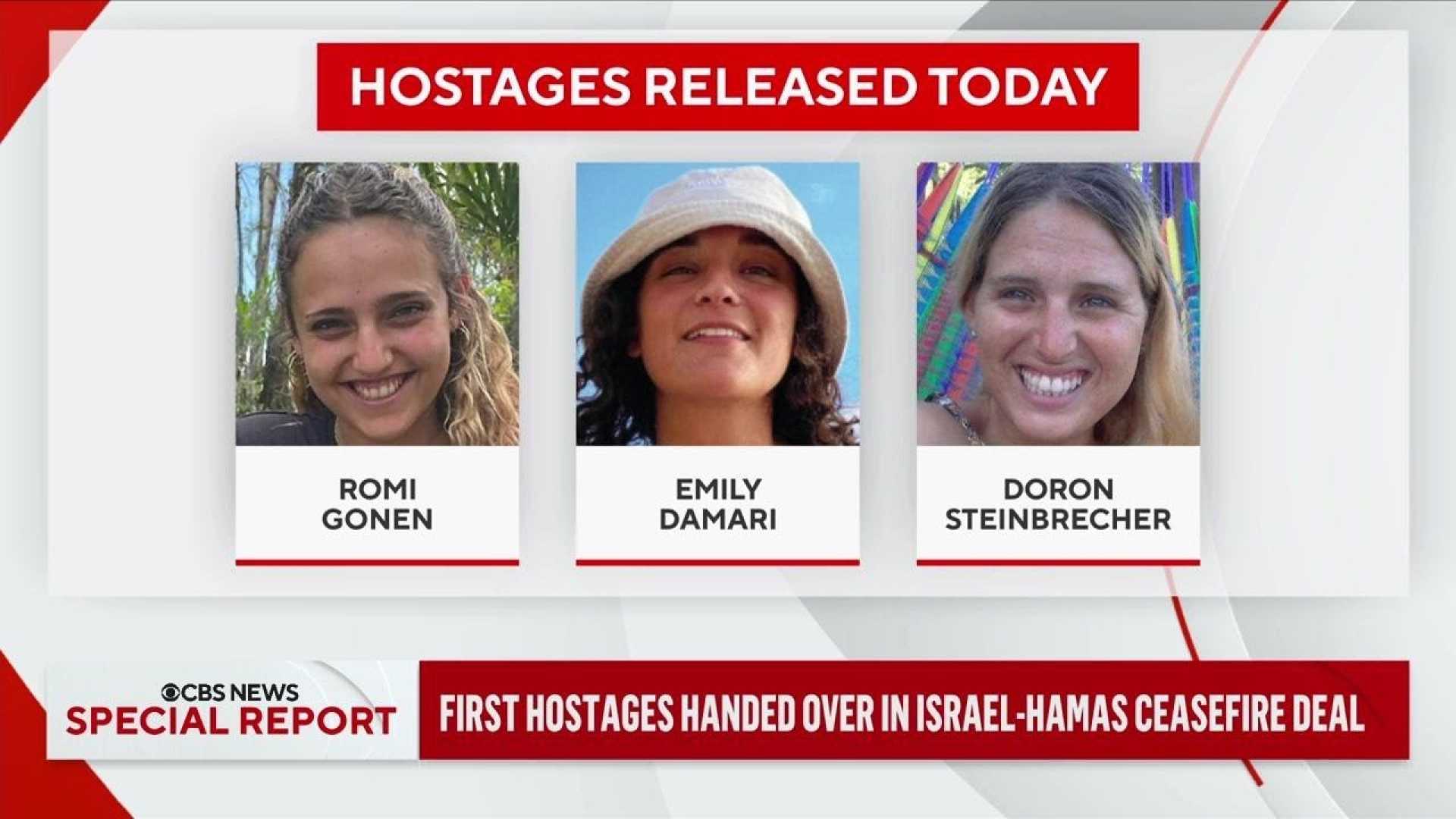News
Hamas to Release Living Hostages and Bodies Amid Ongoing Ceasefire

CAIRO, Egypt — Hamas announced Tuesday that it will release six living Israeli hostages on Saturday, expanding its earlier plan of three, and return the remains of four deceased individuals, including members of the Bibas family. This surprising progression comes amid a U.S.-brokered ceasefire agreement following the Israel-Hezbollah conflict. The identified hostages set to be released include Eliya Cohen, Tal Shoham, Omer Shem Tov, Omer Wenkert, Hisham Al-Sayed, and Avera Mengistu, according to the Hostages and Missing Families Forum. The announcement underscores complex negotiations as both sides attempt to navigate further agreements.
The Bibas family, comprising Shiri and her sons Kfir and Ariel, have become emblematic figures of the hostages’ plight for many in Israel. Despite Hamas claiming their deaths due to Israeli airstrikes, Israeli officials have not confirmed this information. Surviving family members expressed turmoil over the news, stating, “Until we receive definitive confirmation, our journey is not over.”
Israel’s Prime Minister Benjamin Netanyahu has publicly criticized the ceasefire violators and condemned the handling of the deceased, stating the government continues to demand solid results from negotiations that prioritize the safety of all hostages. Israeli officials confirmed that preparations for another phase of the hostage deal are underway, with expectations of significant changes in the coming weeks.
As part of the exchange, Israel plans to release hundreds of Palestinian prisoners, many of whom have been detained for serious offenses. Specifically, during this initial phase of the ceasefire, all women and children detained since the conflict began will also be released. This phase marks a truce after the intense fighting that resulted in over 48,000 Palestinian deaths, with many being women and children, according to health officials in Gaza.
The announcement of the hostages’ release coincides with the entry of mobile homes and construction equipment into Gaza, giveaways that Israel has allegedly conceded to in a gesture designed to foster positive relations. Observers note that this march toward negotiations comes after Hamas threatened to slow the hostage releases, blaming previous refusals to pivot toward aid deliveries.
World Bank estimates suggest that the reconstruction in Gaza could cost approximately $53 billion, reflecting extensive damage to homes amidst the ongoing conflict. With many displaced and returning to their damaged homes, these dynamics add to the regional tension as both sides continue negotiations concerning the next steps and broader consequences of the ongoing situation.
The upcoming negotiations will likely address the broader implications of extended ceasefire conditions and address the allegations surrounding complicity in previous terrorist activities. As the release date approaches, families of the hostages and their communities watch closely, desperate for a positive outcome amidst the complex and often fraught negotiations for peace.












